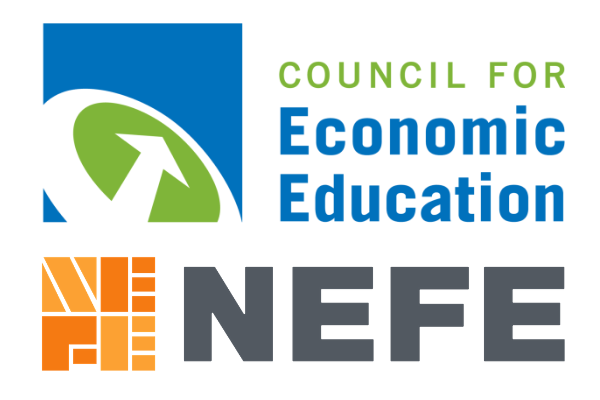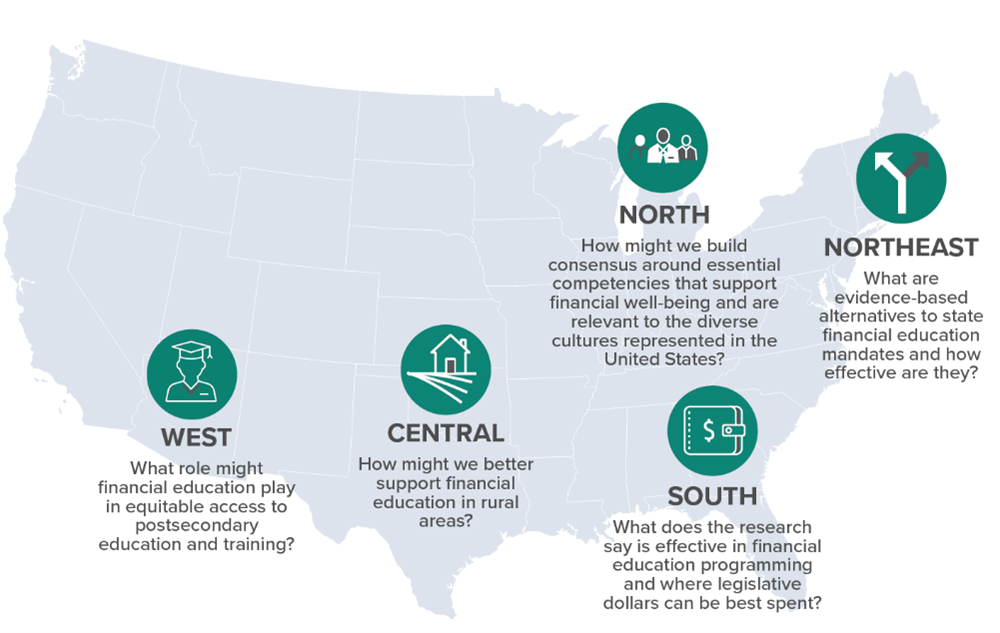
In January and February of 2021, NEFE partnered with the Council for Economic Education (CEE) to develop a series of five financial education policy convenings attended by nearly 250 engaged participants representing 44 states and 140 unique organizations and state agencies. These invitation-only discussions aimed to provide state policymakers an open forum in which to discuss the opportunities, technicalities and challenges they encounter when considering statewide financial education policy and programming.
Participant surveys from these events indicated that our initial goals for the convenings were met:
- Encourage intentionality to financial education policy and practice: Attendees overwhelmingly agreed (73.2%) the event would inform their work.
- Surface research questions: Over the course of the events, we identified five potential research questions that, if answered, could advance the field’s potential for impact. In addition, these conversations revealed that many are unaware of existing research, especially on the downstream effects of financial education.
- Space for new connections: 83.2% of attendees indicated they were somewhat or very likely to reach out to someone who attended their event.
However, the gains go beyond these initial numbers. Over the collective 20+ hours of discussion, we gained insight into the barriers that can challenge financial educators and policymakers, promising innovations and pilots happening across the United States and the unknown data points that, if known, could help advance the field’s potential impact.
We compiled what we heard into six discussion summaries, one for each of the five events and one that captures reoccurring themes across all events. These summaries are now available for download individually or as an e-book compilation. Visit the page for each convening linked below to download the individual summaries.

